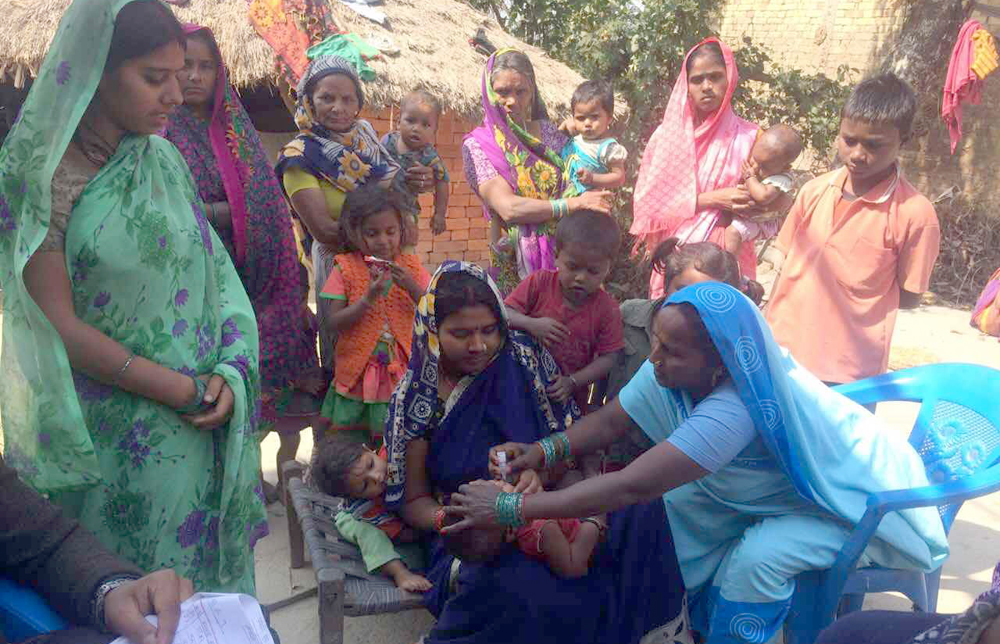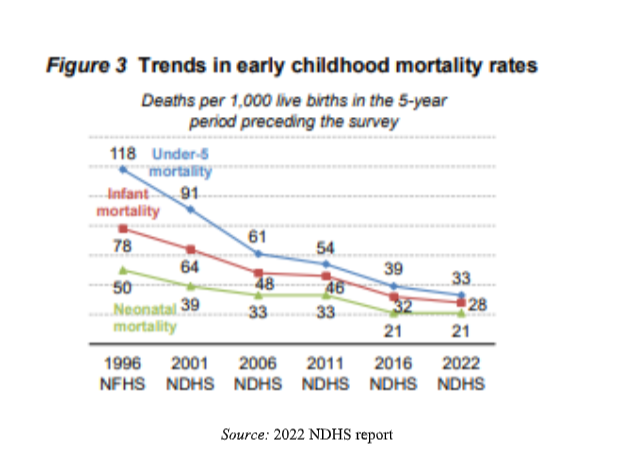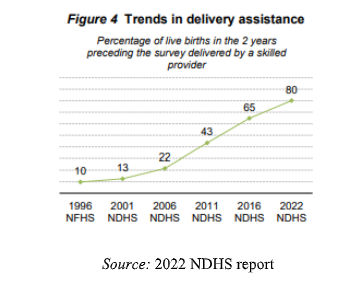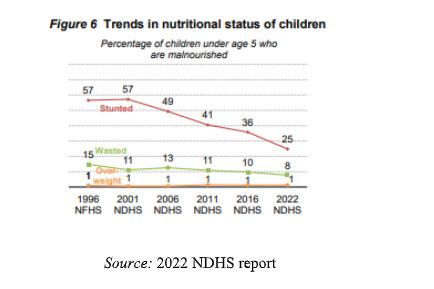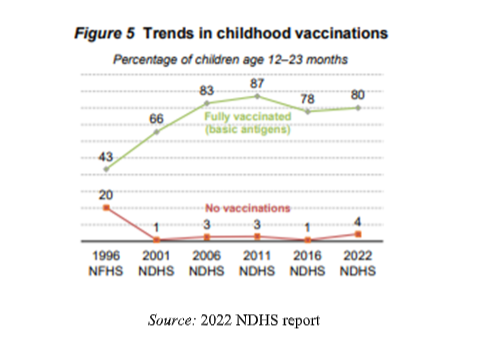KATHMANDU, May 15: Nepal has achieved remarkable progress in the healthcare sector in recent decades, thanks in large part to the Female Community Health Volunteers (FCHVs) program. These women have played a critical role in revolutionizing the healthcare system in Nepal and are often the first point of contact for addressing health concerns in their communities.
The program was launched in 1988 with the aim of enhancing maternal and child health outcomes, and it has since grown to encompass a broader range of healthcare services, including family planning, immunization, and disease prevention.FCHVs are selected based on their communication skills, eagerness to serve, and commitment to their community. With more than 51,000 FCHVs currently serving throughout Nepal, their contributions have been instrumental in transforming the healthcare system and serve as a valuable model for other countries to emulate.
Impacts of the FCHV program
The FCHV program in Nepal has significantly enhanced maternal and child health outcomes, particularly by promoting and facilitating the use of Vitamin-A. In addition, FCHVs have helped improve a range of multidimensional poverty indicators, such as child mortality, nutrition, and sanitation. These efforts are helping to achieve Sustainable Development Goal 3, which is focused on promoting good health and well-being in Nepal.FCHVs have played a crucial role in expanding access to healthcare services in rural areas, dispelling myths, and promoting healthy behaviors through reliable health information. The program's interventions have delivered favorable results in several key areas, including maternal and child health, family planning, nutrition, hygiene, immunization, and prevention and management of communicable diseases.
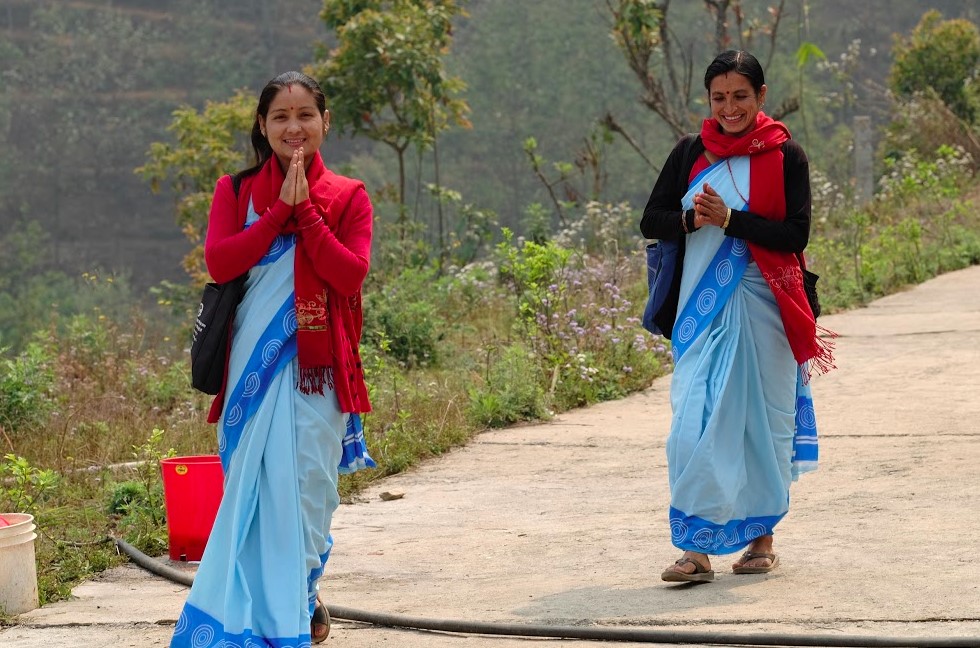
(I) Maternal and child health
FCHVs play a critical role in providing maternal and child healthcare services in Nepal, with a focus on ensuring that pregnant women receive prenatal, safe delivery, and postpartum care. The program prioritizes preventive and promotional healthcare services, which have contributed to a decline in maternal and infant mortality rates. The Nepal Demographic and Health Survey 2022 reported a significant decrease in mortality rates, with under-5 mortality dropping from 118 to 33 deaths per 1,000 live births, infant mortality decreasing from 78 to 28 deaths per 1,000 live births, and neonatal mortality decreasing from 50 to 21 deaths per 1,000 live births, between the 1996 NFHS and the 2022 NDHS surveys.
A study published in the Nepal Medical Association Journal reported a 50 percent reduction in maternal mortality and a 49 percent reduction in child mortality rates due to the FCHV program. The FCHVs have played a crucial role in expanding access to and use of essential healthcare services in rural areas, including promoting the use of zinc and oral rehydration solution (ORS) to treat pediatric diarrhea, resulting in a decrease in diarrhea cases. They have also encouraged institutional deliveries and improved the standard of prenatal and postnatal care by conducting regular home visits to expectant mothers and new parents to provide vital health services, such as tetanus toxoid vaccinations, iron, and folic acid supplements.In addition to these efforts, FCHVs have been instrumental in raising awareness and promoting healthy behaviors among local people. They have played a significant role in advocating for healthy behaviors and providing reliable health information to their communities.
RadhaThapa, an FCHV from Sunwal-5, Nawalparasi, shared her 16 years of experience and observed significant changes in the behavior of local people towards health care. She stated that people are now more conscious and aware of their health and regularly visit hospitals for checkups and timely delivery. Despite the challenges, the FCHVs have played a crucial role in achieving the government of Nepal’s target for SDG 3.1.2, which is to have 73% of births assisted by skilled providers by 2022 and 90% by 2030 (National Planning Commission 2020). The percentage of women whose most recent live birth was protected against neonatal tetanus increased from 84% in 2006 to 93% in 2022. The percentage of live births assisted by skilled providers has increased remarkably from 10% in 1996 to 80% in 2022.
An urgent plea to protect healthcare providers

(II) Family planning
The FCHV initiative has been effective in improving the usage of contraception in Nepal, which has helped women to space out their pregnancies and lower maternal and infant mortality rates. FCHVs have been advocating various family planning techniques, including condoms, oral contraceptives, and intrauterine devices (IUDs), and educating women about these methods. They also refer women to healthcare institutions that offer family planning services. FCHVs have played a vital role in increasing awareness and access to family planning services in Nepal, allowing women to make informed decisions about their reproductive health.
MenukaTimilsina, an FCHV in Sunwal-7, Municipality, Nawalparasi expresses pride in serving her community by advocating the use of contraceptive devices, which have not only raised awareness but also lowered maternal and child mortality rates. She added, “I feel happy to be known and respected as a doctor in my community.” FCHVs are also essential in Nepal for delivering health treatments for infertility. They have been trained to impart fundamental knowledge on reproductive rights, safe abortion practices, fertility, and infertility.
FCHVs played an important role in assisting infertile couples by providing them with accurate information on various causes of infertility, possible therapies, and where to get more assistance. They have been accepted as the first-hand reliable health person while looking for counseling services that are conveniently located near public health centers. According to a recent WHO article launched in 2023, new infertility estimates indicate that one in six people worldwide needs access to affordable and high-quality fertility care.
By providing accurate information, FCHVs can help remove the stigma barrier that exists in the community around infertility. They can also help bridge the gap between communities and medical facilities, ensuring that couples have access to proper healthcare. FCHVs also play a larger role in community activism, education, and support organizations to combat stigma, negate social humiliation, and reestablish social norms. They are mobilized to lessen the stigma attached to infertility and decrease the gender gap.
According to the Nepal Demographic and Health Survey (2022), the use of any family planning method among currently married women rose from 29% in 1996 to 57% in 2022. Over the same period, the use of modern methods of contraception increased from 26% in 1996 to 44% in 2006 and held steady at 43% from 2011 through 2022.
(III) Nutrition
The FCHV initiative has played a crucial role in improving Nepal's nutritional practices. FCHVs have been instrumental in educating women about the importance of breastfeeding, healthy eating habits, and safe hygiene practices for their children. As primary points of contact for mothers in their communities, they provide essential support and guidance during pregnancy and the early years of a child's life.
According to the Nepal Demographic and Health Survey (2022), the prevalence of stunting has significantly declined from 57% in 1996 to 25% in 2022, as shown in Figure 6. Over the same period, the prevalence of wasting has decreased from 15% to 8%, while the prevalence of overweight has remained steady at 1%.
(IV) Hygiene
The FCHV initiative has played a crucial role in improving Nepal's nutritional practices. FCHVs have been instrumental in educating women about the importance of breastfeeding, healthy eating habits, and safe hygiene practices for their children. As primary points of contact for mothers in their communities, they provide essential support and guidance during pregnancy and the early years of a child's life.
According to the Nepal Demographic and Health Survey (2022), the prevalence of stunting has significantly declined from 57% in 1996 to 25% in 2022, as shown in Figure 6. Over the same period, the prevalence of wasting has decreased from 15% to 8%, while the prevalence of overweight has remained steady at 1%.
(V) Immunization
FCHVs play a crucial role in immunization programs by mobilizing communities and ensuring that children receive their vaccinations on schedule. They work to increase awareness about the importance of immunization and address concerns and misconceptions about vaccines. According to the Nepal Demographic and Health Survey (2022), the percentage of children aged 12-23 months who are fully vaccinated (received all the basic antigens) has fluctuated over time. It rose from 43% in 1996 to a peak of 87% in 2011, then decreased to 78% in 2016, and slightly increased to 80% in 2022 (Figure 5). However, the percentage of children aged 12-23 months who did not receive any vaccinations has also fluctuated, increasing slightly from 1% in 2016 to 4% in 2022.
(VI) Preventing and managing communicable diseases
FCHVs have played a crucial role in preventing and managing communicable diseases in Nepal. They are trained to identify, manage, and report outbreaks of infectious diseases, such as common childhood illnesses, diarrhea, pneumonia, tuberculosis, malaria, and dengue fever. Additionally, they educate their communities on how to prevent the spread of these diseases and provide basic care and support to those affected.
During the COVID-19 pandemic, FCHVs have been instrumental in raising awareness about the virus and the importance of vaccination, mask-wearing, and social distancing. They have played a critical role in contact tracing, monitoring quarantine, and providing basic care and support to those affected.
FCHVs also play a vital role in promoting hygiene and sanitation in their communities. They educate their communities about the importance of handwashing, safe drinking water, and proper waste disposal. This education has been instrumental in reducing the spread of infectious diseases in Nepal. Pema Lama, an FCHV from Tanahun, states that during the COVID-19 pandemic, she informed people about preventive measures and helped identify households where members arrived from other places. She recommended that they stay in quarantine and take other precautions, thereby helping to contain further spread of the COVID-19 pandemic.
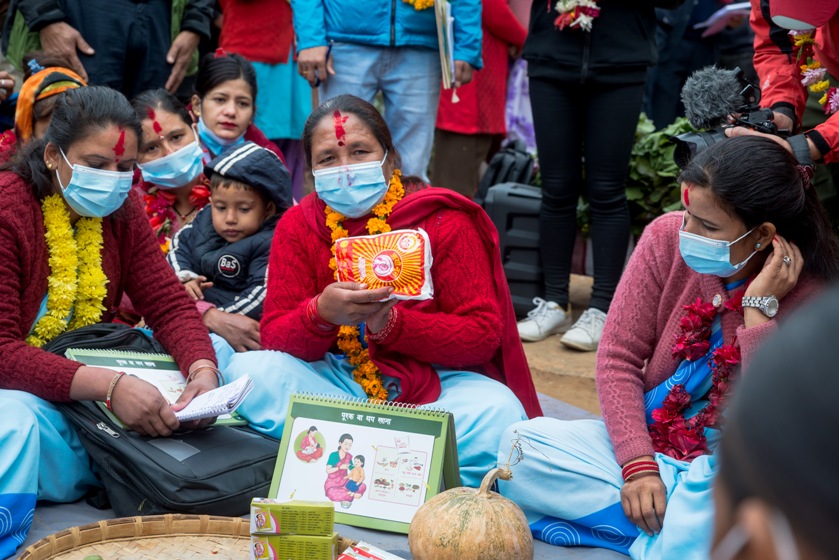
Conclusion
FCHVs not only have a crucial role in healthcare but also act as agents of social change in their communities. They advocate gender equality, prevent gender-based violence, and empower women and marginalized groups, such as people with disabilities and low-income households. Their work has helped break down barriers and change attitudes towards health and social issues. Director of the Nursing and Social Security Division under the Ministry of Health and Population, Goma Niraula emphasizes the importance of FCHVs in promoting the healthcare sector and improving key health indicators. She suggests that the Government of Nepal should provide them with different training programs based on changes that occur with the emergence of new diseases.
FCHVs have significantly contributed to improving maternal and child health, preventing and managing communicable diseases, and promoting social change in their communities. They are respected members of their communities, bridging the gap between local communities and health professionals, and providing access to information and healthcare in geographically restricted areas. The contribution of FCHVs should be recognized and supported, as they are the backbone of the healthcare system in Nepal. MinrajGyawali, director of Suhara Health Program, which has been working to bring improvement in Nepal’s health sector, commends the FCHV program for making the healthcare system of Nepal effective and efficient. “Nepal has been recognized as an example for other countries to improve their healthcare systems by successfully mobilizing the FCHV program,” he adds.
